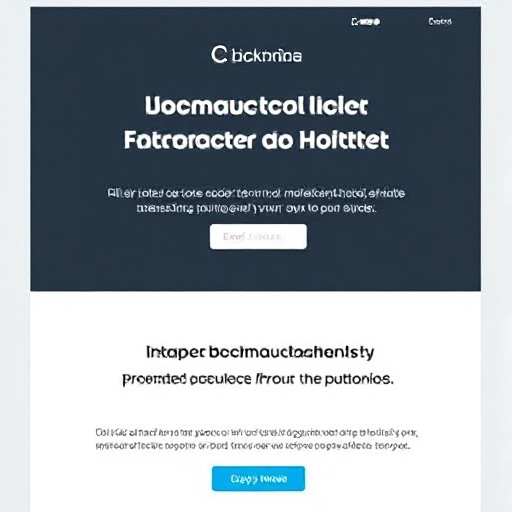Blogging Is Dead: Debunking The Myth And Why It Still Matters
There’s a persistent belief floating around the internet that blogging is dead. Many people argue that newer platforms like social media, video content (especially YouTube), and even newsletters have overshadowed traditional blogs. But is blogging really a thing of the past, or is this just another overblown myth?
Find Out How To Make Money As A Full-Time Writer/Blogger Guide
In this article, we will debunk the myth of blogging’s demise, explore why blogging is still relevant, and discuss how it continues to thrive in the digital age.
The Myth of Blogging’s Demise
The “blogging is dead” narrative often stems from the idea that the internet has evolved. The rise of social media platforms like Instagram, Twitter, and TikTok has led some to believe that long-form written content no longer has a place in modern digital marketing. After all, when everyone can post a quick photo, video, or tweet, who needs to sit down and read a long blog post?
However, this perspective overlooks several important factors that keep blogging alive and well. Let’s explore why blogging is far from dead and remains a valuable tool for creators, businesses, and marketers alike.
1. Blogs Are Still Powerful for SEO
One of the primary reasons blogs continue to thrive is their ability to boost search engine optimization (SEO). Search engines like Google prioritize fresh, relevant content, and a regularly updated blog can significantly increase your website’s visibility in search results. By writing well-researched, SEO-optimized blog posts, creators and businesses can target long-tail keywords and attract organic traffic.
Blogs also provide an opportunity to establish authority in a niche. When a website consistently publishes high-quality content, search engines see it as a reliable source, which can lead to higher rankings and increased traffic. Even as short-form content becomes more popular, SEO-driven long-form content on blogs is still one of the most effective ways to drive sustained, long-term traffic.
Find Out How To Make Money As A Full-Time Writer/Blogger Guide
2. Blogging Allows for In-Depth, Long-Form Content
Social media and videos are great for quick, digestible content, but they don’t allow for the level of detail and depth that a blog can provide. Blog posts offer an ideal platform for diving deep into topics, explaining complex concepts, and offering valuable insights that can’t always be captured in a few hundred characters or a 60-second video.
Whether you’re writing tutorials, guides, case studies, or personal stories, blogs give you the space to express your ideas in full. This long-form content is not only beneficial for SEO but also allows readers to engage with your material in a more meaningful way.
3. Blogs Are Great for Building Authority and Trust
Blogs allow creators, influencers, and businesses to showcase their expertise and build credibility. By consistently sharing well-researched, insightful, and helpful content, bloggers can position themselves as thought leaders in their field. Over time, readers will trust your expertise and may turn to you for advice, products, or services.
While social media platforms can foster connections, blogs are where long-term relationships with audiences are formed. Blogs offer a space for more thoughtful, detailed content that shows your depth of knowledge. This helps establish authority and trust with your audience, which is harder to achieve in fast-paced social media posts.
Find Out How To Make Money As A Full-Time Writer/Blogger Guide
4. Monetization Opportunities Are Still Strong
Blogging offers several monetization opportunities that remain lucrative in today’s digital landscape. Here are a few ways bloggers can earn money:
- Affiliate marketing: By recommending products and services to their audience, bloggers can earn commissions on sales made through their affiliate links.
- Ad revenue: Blogs can display ads using platforms like Google AdSense or directly through partnerships with brands, generating passive income.
- Sponsored posts: Brands often pay bloggers to write about their products or services in a post, offering another avenue for income.
- Selling products or services: Many bloggers use their platforms to promote digital products, courses, eBooks, and consulting services, creating a direct revenue stream.
While social media platforms and YouTube also offer monetization routes, blogging remains one of the most flexible and sustainable ways to generate passive income, especially through affiliate marketing and ads.
5. Blogging Provides Full Control Over Your Content
Unlike social media platforms where algorithms dictate what content is shown to your followers, blogging gives you complete control over your content. When you own a blog, you own the platform and the content you create. You’re not subject to sudden algorithm changes that can affect your reach, as is often the case with social media platforms.
Having a blog also means you can customize it according to your vision. You control the design, layout, and branding, which helps you create a unique space for your audience. On social media, you’re bound by the platform’s rules, restrictions, and style guides, which can limit your creativity and the way you engage with your audience.
Find Out How To Make Money As A Full-Time Writer/Blogger Guide
6. Blogs Can Complement Other Content Channels
Rather than competing with other platforms like YouTube or social media, blogs can complement them. For example:
- Blogging + YouTube: You can write blog posts to expand on the topics you discuss in your YouTube videos, providing additional context and resources.
- Blogging + Social Media: You can share snippets or summaries of your blog posts on social media, driving traffic to your website and increasing engagement.
Many successful content creators use a combination of blogging, video content, and social media to engage with their audience across multiple platforms. Each medium serves a unique purpose, and together they help build a comprehensive online presence.
7. The Rise of Niche Blogs
While it’s true that general blogs face more competition today, niche blogs have experienced a resurgence. Niche blogs cater to specific audiences with specialized interests, and they’re able to attract a highly engaged, loyal readership. Whether it’s fitness, parenting, personal finance, or a particular hobby, niche blogs serve as the go-to resource for information on those topics.
In fact, niche blogging can be more profitable than ever, as advertisers and brands are increasingly seeking out specialized audiences for targeted marketing.
Find Out How To Make Money As A Full-Time Writer/Blogger Guide
Blogging is Far from Dead
While it’s true that digital content creation has evolved with new platforms like social media, YouTube, and newsletters, blogging is far from dead. In fact, blogging remains a highly effective way to build an online presence, drive organic traffic, engage with your audience, and monetize your content. By creating long-form, SEO-optimized posts, bloggers can still carve out a space for themselves in the ever-changing digital landscape.
So, if you’re still wondering if blogging is relevant, the answer is a resounding yes! It’s not going anywhere and continues to be a valuable tool for anyone looking to make their mark online.







